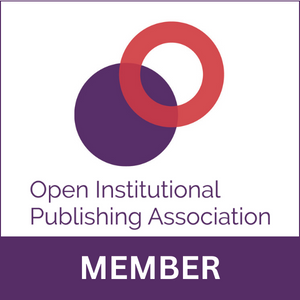
Accessibility Statement
Accessibility statement for Open Journals LJMU
This website is run by Liverpool John Moores University. We want as many people as possible to be able to use this website. For example, that means you should be able to:
- change colours, contrast levels and fonts
- zoom in up to 300% without the text spilling off the screen
- navigate most of the website using just a keyboard
- navigate most of the website using speech recognition software
- listen to most of the website using a screen reader (including the most recent versions of JAWS, NVDA and VoiceOver)
We’ve also made the website text as simple as possible to understand.
AbilityNet has advice on making your device easier to use if you have a disability.
How accessible this website is
We know some parts of Open Journals are not fully accessible:
- most older PDF documents are not fully accessible to screen reader software
- some images (including linked images) do not have alternative text descriptions
- some form controls do not have an associated label
More details about areas of Open Journals site that are not fully accessible can be found below in the 'Non compliance with the accessibility regulations' section of this statement.
What to do if you cannot access parts of this website
Use our contact us form to get in touch, please provide as much detail as possible relating to your request.
https://www.ljmu.ac.uk/microsites/library/about-ljmu-libraries/contact-us/contact
We’ll consider your request and get back to you in 2 working days days.
Reporting accessibility problems with this website
We’re always looking to improve the accessibility of this website. If you find any problems not listed on this page or think we’re not meeting accessibility requirements, contact Library Services Researcher Engagement team: https://www.ljmu.ac.uk/microsites/library/about-ljmu-libraries/contact-us/research-support-team
Enforcement procedure
The Equality and Human Rights Commission (EHRC) is responsible for enforcing the Public Sector Bodies (Websites and Mobile Applications) (No. 2) Accessibility Regulations 2018 (the ‘accessibility regulations’). If you’re not happy with how we respond to your complaint, contact the Equality Advisory and Support Service (EASS).
Contacting us by phone
Information about contacting the team can be found at on the contact us page.
Technical information about this website’s accessibility
Liverpool John Moores University is committed to making its website accessible, in accordance with the Public Sector Bodies (Websites and Mobile Applications) (No. 2) Accessibility Regulations 2018.
Compliance status
This website is not compliant with the Web Content Accessibility Guidelines version 2.1 AA standard. The non-accessible sections are listed below.
Non accessible content
The content listed below is non-accessible for the following reasons.
Non compliance with the accessibility regulations
- Some images, including linked images, do not have any alternative texts associated with them.
- Some form controls do not have associated names.
- Some links do not have explanatory text associated with them.
- Some tables do not have headers for columns or rows.
- Some pages contain layout tables, which may be difficult to navigate with screen readers.
These issues will be resolved in a planned upgrade to this repository.
Disproportionate burden
None of the issues listed above present a disproportionate burden to fix. They will all be resolved as part of a planned upgrade.
Content that’s not within the scope of the accessibility regulations
PDFs and other documents
As Open Journals LJMU is an open access journals platform, the principal content made available to users are research outputs such as articles, papers and reports, many of which are PDF documents. Many PDF documents, especially older ones, are not fully accessible to screen reader software and do not contain other common accessibility features. In particular:
- many documents, especially older ones, do not conform to the PDF/A archiving format.
- many lack bookmarks or document titles, therefore failing to meet WCAG 2.1 success criteria 2.4.5 and 2.4.2.
- many discuss scientific or scholarly concepts which may be abbreviated with no mechanism for discovering the meaning of the abbreviations, or unusual words arising from scholarly discourse without definitions. These issues each fail WCAG 2.1 criteria 3.1.4 and 3.1.1 respectively.
- there may be some documents that fail to specify their human language, thereby failing WCAG 2.1 success criterion 3.1.1.
- many documents may not reflow satisfactorily. This fails WCAG 2.1 success criterion 1.4.10.
What we’re doing to improve accessibility
The Creators of the OJS platform, Public Knowledge Project have published an Accessibility Statment that shows how and when they plan to improve accessibility on this website.
Preparation of this accessibility statement
This statement was prepared on 01/08/2023. It was last updated on 01/08/2023.
This website was last tested on 01/03/2021 The test was carried out by Access Changes Everything Inc
We used this method to decide on a sample of pages to test.

